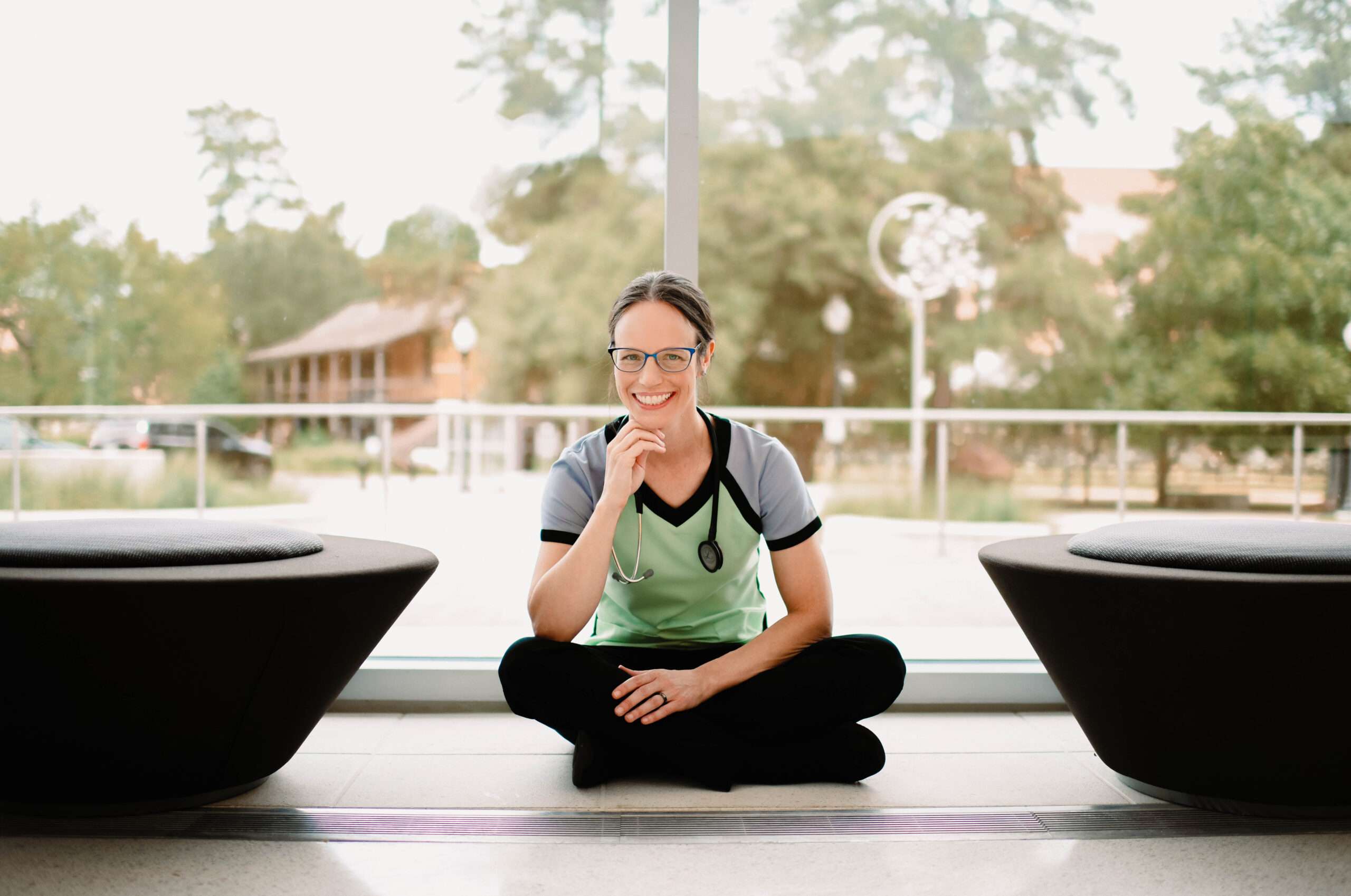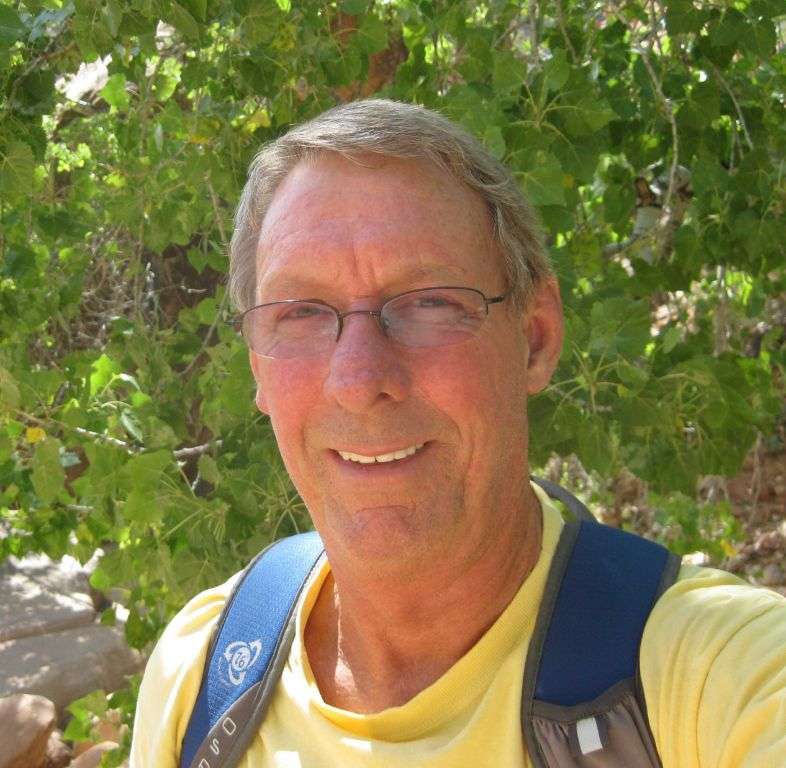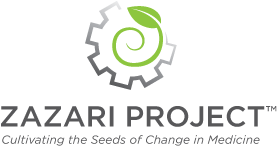Charlotte Appleton,
MD, MBA
The trouble with being an intuitive, creative type in a career that values analytical logic is constant discord between what I feel I should be doing and what I am doing. I was lured into medicine for love of a challenge, but the field’s aversion to creative thinking took me on an extraordinary ride. Today, I see only one logical conclusion to the current dark age of medicine: end it by using creativity to usher in a paradigm that actually heals.
My youth was filled with music, making art and traveling. My sister and I used to complain that our family didn’t go on vacations, but educations. At every opportunity, my parents packed up kids and camper to trundle off to some art exhibit, musical production or national landmark.
By college, aspirations of becoming a famous oboist or architect fell by the wayside. I followed a fascination for biology to a Bachelor of Science in molecular genetics, which included two years of research in a virology lab. In 2001, I abandoned creative endeavors, pinned on 2nd lieutenant, and began the long trek to becoming a board-certified internist.
The Air Force ushered me through medical school, a three-year internal medicine residency, two combat deployments, and a master’s degree in business administration. In 2012, I transitioned to reserve duty, moved to Colorado and started working in private practice. It had taken a decade, but that’s when the intellectual challenge of medicine wore off and my creative brain emerged from its long hibernation. The first thing it asked was, “So if you became a doctor to heal people, why can’t you heal anyone?”
I loved working with patients, but managing chronic diseases was a grind. I felt like a broken record, offering the same advice, ordering the same tests and consultations, and prescribing the same life-long drugs. Dodging drug reps and forcing myself to care about metrics, medical coding and productivity wasn’t just exhausting but pure drudgery.
While continuing with 70-hour work weeks plus military duties, I started journaling about my dilemma. I realized that modern medicine’s failure to explain why people get chronic disease is the reason cures don’t exist. That simple observation has given me no peace since. When I burned out in 2014, I resigned to become a travel writer. My new mission was to learn to think differently about disease and find the answer to my dilemma… somewhere.
For the next three years, I cast a wide net in search of missing knowledge. I traveled the world as an explorer and a deployer, across the globe and through the pages of knowledge from thermodynamics, mathematics and chaos theory for laymen to philosophy, war, religion and sociology to music and the arts. I tried most everything to uneducate myself. My colleague Steve Best was in the intellectual thick of it with me, neither of us sure if our theoretical discussions represented a folie à deux or a move toward discovering reality. The more I learned, the less I understood.
One reality was certain. I still had bills to pay. I picked up temporary internal medicine gigs which afforded me experience in nearly every healthcare sector plus opportunities to try my ideas on physician colleagues. I expected engaging dialogue but met alienation instead. I retreated into almost complete solitude on the subject for the next seven years. I never wrote a single travel article.

By 2017, I decided that the responsible thing to do was dial back on the fantasy and get a real job, but not without a parting shot. I wrote a paper entitled “The Air Force of 2050: A Paradigm Shift,” which won an essay competition of over 100 entries, hosted by Air Force Blue Horizons and the Air University Foundation. I was recognized for bold and creative ideas based on a thought experiment I called “kinetic karma” that culminated with describing how inducing consciousness in matter could ultimately end war. The accolade was reassuring that maybe I wasn’t as crazy as I sometimes felt.
I started anew in Nacogdoches, Texas where I worked as a full-time hospitalist and accepted a reserve squadron command in Little Rock, Arkansas. Being a commander was at once the pinnacle of my Air Force career and a humbling experiment in leadership. I learned the hard way how to create a high-performance team and drive a mission while building it. Meanwhile, I tried to coax my natural skills into an alchemist leadership style. To what end I wasn’t sure, but it struck me as interesting.
Although my jobs were time consuming, the change in environment, redirection of my attention and addition of structure to my life produced an unexpected explosion of ideas. I worked late into the evenings white-boarding, researching, and stirring ideas around until little ideas started clumping together into bigger ones. Fantastical insights and theories that hinted at a new paradigm began to emerge, but I lacked the language or context to make proper sense of them.
Then there was 2020. I remember it as the year I traded in solitude for a family. I completed the command tour, promoted to colonel, and did my part to care for hospitalized COVID-19 patients that I couldn’t heal. While the pandemic produced no new insights about disease, a quiet moment of marveling at my son’s miraculous ability to learn and grow did. Disease cannot be understood by examining disease, but by understanding life. That was the missing ingredient that ironically brought my ideas to life.
In 2022, I took the first steps toward realizing a paradigm shift in medicine. Now in my 40s, I have knowledge, but choose to lead with creativity. The balance has shifted from knowing more and more about less and less to a unified, creative and emerging understanding. Steve and I have taken this endeavor about as far as two eccentrics can. I founded Zazari Project to create the community that I could never find. I invite you to go beyond logic and be part of the team that creates the tomorrow we all crave.
Charlotte C. Appleton
Stephen E. Best, LLF
I’m not sure when it began, but for as long as I can remember I have been fascinated with why people believe what they believe. Fortunately, I grew up in an environment that encouraged challenging questions and I had way too many. I spent most of my time reading about philosophy, physics and every book I could get my hands on about religion. My family called me a walking encyclopedia of useless information. I always thought that there was a compliment hiding in there, somewhere.
The more I read, the more I encountered a confusing array of ideas that claimed factuality, to the exclusion of others. Every author seemed to assert that they were right and everyone else was wrong. That didn’t seem likely and I wondered how they became so convinced and why their readers deferred to their claim of authority.
The expansion of the Vietnam War became inevitable and I enlisted in the U.S. Marine Corps in 1965. I spent 1968 and 1969 as a combat soldier in Quang Tri Province, South Vietnam, gaining lots of experience in what I did not want to do with the rest of my life. After my discharge in 1970, I returned to my studies, with the intent of becoming a professor of philosophy. After several years of changing my major every time something new crossed my path, my money ran out and I made my entry into the world of business.
At the beginning of my business career, I didn’t have a clue how the market worked. So, I got a job and dived into the study of macro and micro economics. In case you don’t already know, those are two of the least inspiring subjects of all time. Apparently, no two economists agree on how the mechanisms of supply and demand actually work in the exchange of goods and services. The short story of this endeavor is that the books were useless; to learn anything thoroughly I would have to experience it. Into the fray, with both feet, again.
Over the next decade, I started and failed in half a dozen different businesses, but finally one of them succeeded and made it possible for me to have a family. Three beautiful children later, I settled in as an upper middle class California entrepreneur, but that didn’t last. A much larger company came to town and offered me a ridiculous price for my little enterprise, so I retired and traveled for a couple of years. Along the way, I learned much more than I expected about what people think and why they think what they think. It turns out that most of them didn’t know how they arrived at their current state of mind. Very few were able to articulate the origins of their views and none seemed to be aware of the problem with that. Definitely not what I expected.
After a few years of writing, drawing, studying and hundreds of conversations with anyone I met, I began to see how much our thoughts and actions were bound by convention and belief. That self-imposed set of conditions was surprisingly universal and appeared to confine our thoughts within some sort of paradigm prison, from which escape was all but impossible. Again, not what I expected and rather discouraging.

Fortunately, I had one friend who was not intimidated by convention and was open to ideas that did not have to make sense at first glance. We met often and our conversations encouraged me to look again at what I thought I had learned from my travels and interactions. What resulted from revisiting my experiences was to change the way I looked at almost everything. I already knew that our perceptions are entirely dependent on our perspective. In other words, limiting conditions which we set ourselves. What I had not realized was that they can be changed by simply choosing to do so.
That is a lesson that I should have “learned” in my studies of Buddhism, the essence of which is: “All things that come into existence do so in dependence upon conditions and, in the absence of those conditions, do not exist.” Changing the conditions that we have set for ourselves isn’t easy, but when we release ourselves from the restrictions of conventional ideologies, imagination is free to expand and create without limit; a delightful freedom that we all shared as children. I’m convinced that that freedom still resides within all of us and we can reawaken it.
Our guiding principle is that the “Popular Acceptance of Any Idea Is Not Confirmation of Its Validity.” I hope that you will agree and join us in the Zazari Project. Together we can create the conditions for a paradigm shift that is long overdue.
What do you think? Let’s give it a try.
Stephen E. Best, LLF
*In case you’re curious, the friend is Charlotte*
